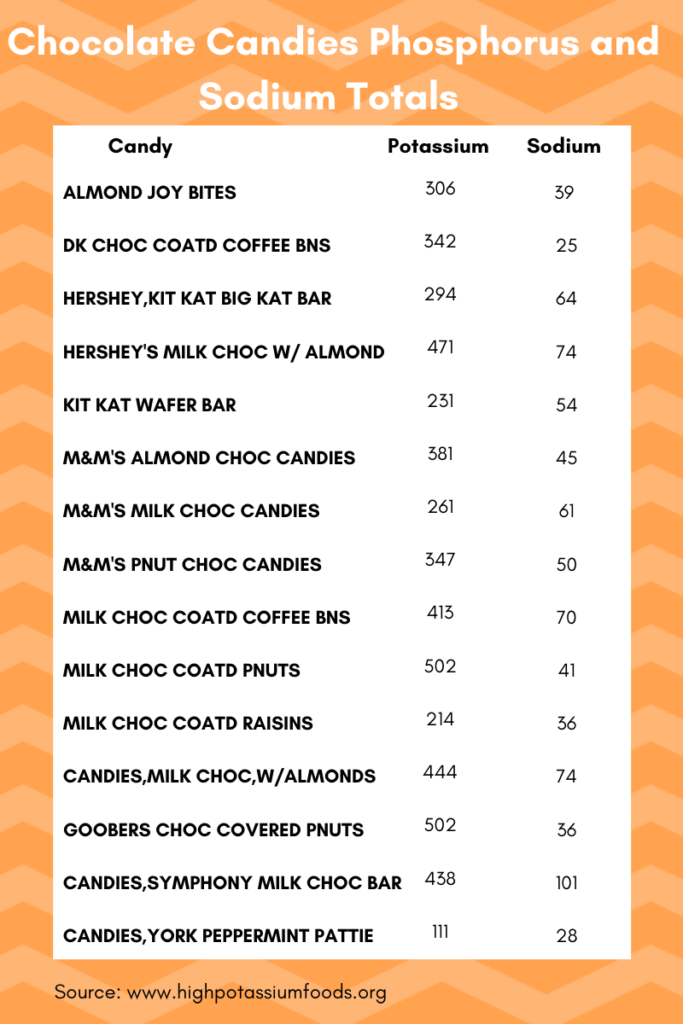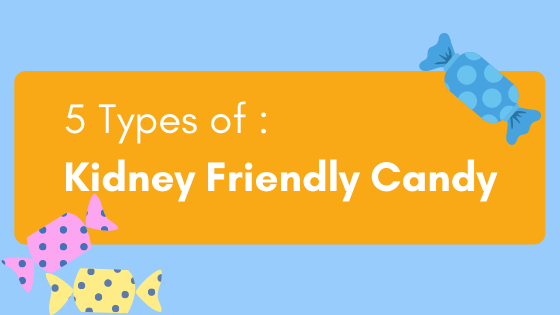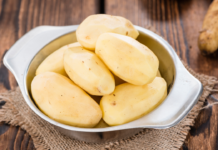*These statements have not been evaluated by the US Food and Drug Administration. This information is not intended to diagnose, treat, cure, or to prevent any disease. Always consult with a qualified healthcare professional prior to beginning any diet or exercise program or taking any dietary supplement. The content on our website is for informational and educational purposes only.
Candy, its hard to resist it. But when living with chronic kidney disease (CKD), it’s important to know which candies are kidney friendly and which to avoid, especially if you are on a dialysis diet. It’s okay to have a sweet tooth, most of us do! So here we are to help you satisfy your cravings, but remember moderation is a must!
According to DaVita, the following list of candies are O-KAY to treat your kidneys to:1
1. Hard Candy
- Jolly Ranchers
- Sweet Tarts
- Lemonheads
- sugar-free hard candies
- Life Savers
- Lollipops
- Smarties
- Candy Canes
- Mike‘n’Ikes
- Jawbreakers
- Werther’s
2. Gummy Candy
- Gummy Bears/Worms
- Jelly Beans
- Dots
- Sour Patch Kids
- Jujyfruit
- Peach Rings
- Fruit Slices
3. Marshmallow Candy
- Peeps marshmallows
4. Chocolate Covered Candy
- York Peppermint Patty
- Junior Mints
- Three Musketeers
5. Chewy Candy
- Starburst
- Skittles
- Laffy Taffy
- Air Heads
- Candy Corn
- Tootsie Rolls
Tips & Tricks: Avoid candies that are high in phosphorus and potassium.
Some examples of candy to AVOID include:
This includes chocolate candy, candy with nuts, candy with dried fruit, peanut butter, caramel, coconut and certain chocolate covered candies.1
Chocolate Bars/Chocolate with Nuts
- Milk/Dark/White Chocolate
- Hershey’s
- Cadbury
- Heath Bar
- Kit Kat
- Nestle Bars
- Rolo’s
- Pay Day
- Snickers
- Peanut M&M’s
- Hershey Bar with Almond
- Mounds
- Baby Ruth
Candy with Peanut Butter
- Reece’s Peanut Butter Cup
- Reece’s Pieces
Candy with Dried Fruit
- Raisinet
- Raisins

It’s important to monitor your phosphorus and potassium intake while living with chronic kidney disease. A buildup of phosphorus can be damaging to your heart and bones.2 If the kidneys cannot filter out phosphorus, it leads to a calcium deficit in your bones. This can also cause calcium deposits in the heart, lung, blood vessels and eyes. Overtime, this may lead to a stroke or a heart attack.3
Potassium helps your body maintain a regular heartbeat and keeps the muscles functioning correctly. Having a high potassium intake may increase your risk of having a potential heart attack or irregular heartbeat.4 A buildup of potassium may also cause weakness or tiredness.
Remember to always speak with your Primary Care Physician and/or dietitian first to see what the best diet plan for you may be.
Sponsor: Kibow Biotech® 
References
- “Kidney-Friendly Candy for Dialysis Patients.” DaVita, www.davita.com/diet-nutrition/articles/advice/kidney-friendly-candy-for-dialysis-patients.
- “PotassiumFoods, Phosphorus Foods and the Dialysis Diet.” DaVita,www.davita.com/diet-nutrition/articles/basics/potassium-phosphorus-and-the-dialysis-diet.
- “Phosphorus and Your CKD Diet.” National Kidney Foundation, 30 Aug. 2019,www.kidney.org/atoz/content/phosphorus.
- “Potassium and Your CKD Diet.” National Kidney Foundation, 2 Nov. 2018, www.kidney.org/atoz/content/potassium.




